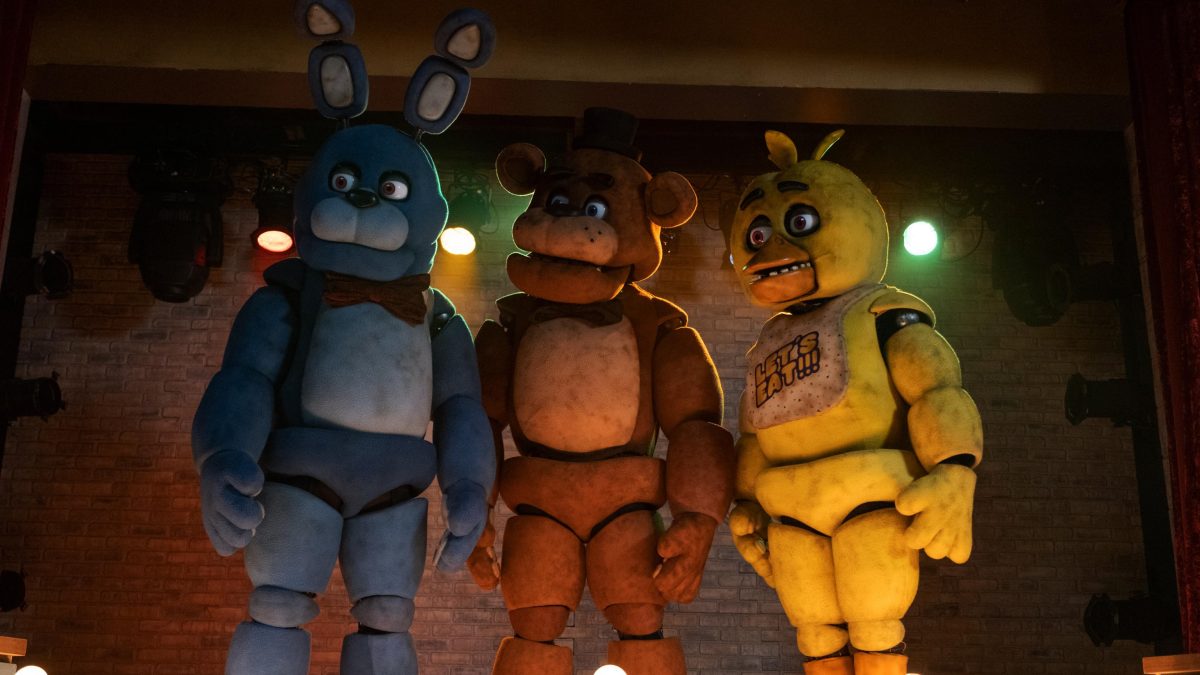By: Faith Chesbrough
 Being vegan does not mean that you shove tofu down people’s throats or that you hate “meat-eaters.” It means that you do not eat anything that came from an animal in any way. It’s as simple as that. Vegans are starting to become a part of mainstream culture. There are vegan restaurants all over, from Sweetgreen in Boston to Chickpea in Worcester. Vegan cookbooks are even appearing on the New York Times bestsellers lists. You may be thinking, “I would never be able to give up bacon” or “I would miss milk in my cereal too much.” However, being vegan is easier than one might think and you will thank yourself in the long run for making the switch sooner rather than later. Living a vegan lifestyle is not only good for your health, but for the environment and animals as well.
Being vegan does not mean that you shove tofu down people’s throats or that you hate “meat-eaters.” It means that you do not eat anything that came from an animal in any way. It’s as simple as that. Vegans are starting to become a part of mainstream culture. There are vegan restaurants all over, from Sweetgreen in Boston to Chickpea in Worcester. Vegan cookbooks are even appearing on the New York Times bestsellers lists. You may be thinking, “I would never be able to give up bacon” or “I would miss milk in my cereal too much.” However, being vegan is easier than one might think and you will thank yourself in the long run for making the switch sooner rather than later. Living a vegan lifestyle is not only good for your health, but for the environment and animals as well.
“Being vegan simply means living the values you already have,” says adjunct English professor at Fitchburg State University, Elizabeth Gordon. “Most people are against animal suffering and cruelty; most want to help the environment and stop the destruction of rain forests, and most want to avoid chronic disease,” says Gordon.
“Out of the 10 chronic diseases in the U.S. that kill people, seven of those are diet related,” says Gordon. Some of those diseases include cancer, kidney disease, heart disease, and type two diabetes. Being vegan has other health benefits such as weight loss and better overall health. “Processed foods are never as good as whole foods,” says Gordon, and, “intake of animal protein is very harmful to your health.”
World Health Organization recently added processed meats to their list of carcinogens, now alongside alcohol, cigarettes, asbestos, and arsenic. Gordon says, “I think it’s good to have a giant organization finally recognize what we have known for decades — that processed meats and smoked meats are carcinogenic.” Not only can eating meat be bad for your health, especially in large quantities, but it can also be bad for the planet.
Becoming a vegan is one of “the easiest ways to reduce your carbon footprint,” according to Gordon. Peta released an article that states, “a staggering 51 percent or more of global greenhouse-gas emissions are caused by animal agriculture, according to a statement published by the Worldwatch Institute.” Christopher Picone, an environmental science professor at FSU, absolutely agrees that the amount contributed is significant, whether or not it is 51 percent from animal raising alone though, he is unsure about. “Depending on how you account for it, I would agree that [agriculture] would be the majority of our greenhouse gas emissions,” says Picone. Gordon states that she feels good that “there’s no global warming in [my fridge],” when she opens it.
Not only does modern agriculture contribute to the warming of the atmosphere, “modern farm chemicals are dangerous,” too, according to Picone. “We do a lot of harm to the planet by the way we raise eggs and milk, never mind beef…and the way we raise most of our animals is absolutely stupid,” says Picone.
Gordon says she does not want “to contribute to an industry that is unregulated…the laws for farm animals are pretty much non-existent.” “Whatever the traditional common practice is commonly determined as okay. If it is common to take male chicks…and throw them in a garbage bag and suffocate them, then that’s okay,” says Gordon.
Gordon has been a vegan for about five to six years, and was a vegetarian for 15 years before that. She also has a certificate for plant-based nutrition from Cornell University. She made the switch from vegetarian to vegan after she attended a vegan potluck on Thanksgiving and realized that there were so many delicious foods what could be just as good without her weakness–cheese, something which is hard for a lot of people to give up according to her. “I was an avid meat eater…if I could go vegan, someone who hated plants, literally, wouldn’t eat a cooked vegetable, let alone a salad…if I can do it, anybody can do it,” says Gordon.
“We have to cut down on the amount of meat we eat environmentally, ethically, and health wise,” says Picone. The substitutes for your favorite animal products are good substitutes, not only in taste, but in nutrients as well. “I think they’re a great way to help people transition from meat,” says Gordon. Even if someone isn’t a ‘true vegan’ anything they can do to decrease suffering [of animals], harm to the environment, and harm to themselves, I’m for that,” says she.
Gordon gives this advice to anyone thinking about making a change in his or her diet: “Try it, don’t be afraid. Don’t beat yourself up if you slip. It’s not ‘all or nothing’ every step you take to go more plant-based is good.”
Some people may be afraid to call themselves a vegan if they do switch because of the bad light they have been portrayed in by the media, but Gordon says there’s nothing wrong with calling yourself, “a plant-based eater,” or something along those lines, labels are not important. She also says that vegans just need to, “stay true to what we know is helping the planet, animals, and our own bodies. Have no fear or anger towards anyone who wants to mock us.” She says she’d, “rather be on the radar than people not hearing about it.”
If you’re interested in what a healthy vegan diet entails, Gordon suggests checking out OpposeCruelty.org/guide to check out a free guide to cruelty-free eating, recipes, dairy alternatives, and more. You can also check out Gordon’s Meet Up page for her group, Vegans of North Central Massachusetts (http://www.meetup.com/North-Central-Mass-Vegans/), to learn about events going on and to find a supportive community of like-minded people.
Bon Appétit!
Categories:
One Bite Closer to a Healthy Life
December 3, 2015
0






